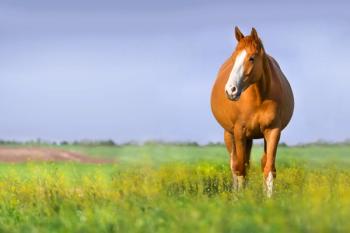
Sterilization drug in works for wildlife, possibly companion animals
College Station, Texas - Researchers at the Texas A&M College of Veterinary Medicine (CVM) are finalizing development of an oral contraceptive to help to control wildlife populations and that might one day be modified for companion animals.
COLLEGE STATION, TEXAS — Researchers at the Texas A&M College of Veterinary Medicine (CVM) are finalizing development of an oral contraceptive to help to control wildlife populations and that might one day be modified for companion animals.
Called phosphodiesterase 3 inhibitor, the tabular and powder-formed birth-control drug will be used to help landowners protect their property by reducing the number of coyotes, wild pigs, cougar, deer and other wild animals, says Duane Kraemer, one of the researchers. The professor of veterinary physiology and pharmacology is a recognized expert in embryo transfer and cloning.
"It prevents the egg from maturing. The animals continue to cycle, but because the egg isn't mature they can't get pregnant," he explains.
Kraemer and his research team — a pharmacologist and statistician — are testing the contraceptive to identify administration methods, minimum effective dosage levels and consumption safety for various species.
"Wild pigs are consumed by humans, so we have to make sure whatever contraception is used is compatible with human consumption," Kraemer says. "And certainly there would need to be permits and approvals in order to be able to put this into the environment. Progress is just so dependent on grant money, which is so unpredictable."
The project has been supported by veterinarians, who understand the drug's need, he says. "Most veterinarians appreciate the concern for the damage that these wild pigs and animals are doing to land and ... would be pleased to have something to help manage that."
In the future, the drug may be evaluated for use in companion animals. But because animals' cycles continue through the use of the contraceptive in its current formulation, it may not be ideal for pet owners.
While the drug alone will not control animal reproduction, it is hoped to be another important step. "I'm not suggesting that oral contraception is the whole answer to controlling these populations. But hunting and trapping hasn't been effectively controlling them, so I'm hoping this approach will work," Kraemer says.
"I'm confident we won't eliminate the necessity of hunting or trapping," he adds.
Newsletter
From exam room tips to practice management insights, get trusted veterinary news delivered straight to your inbox—subscribe to dvm360.




